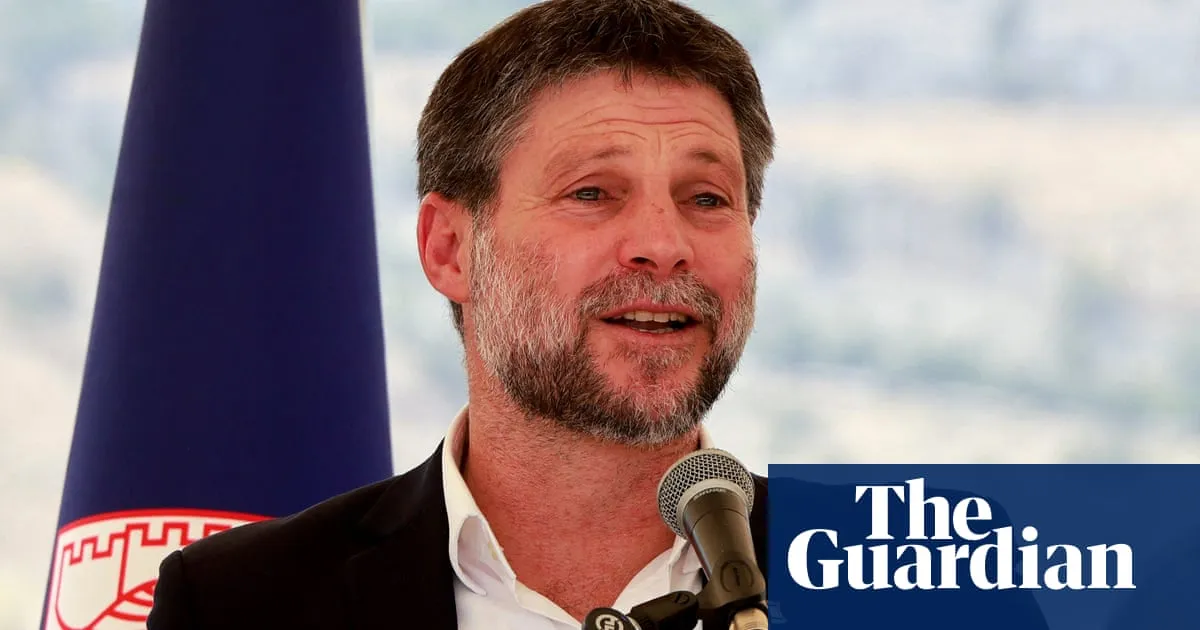
Israel is on the verge of granting formal planning approval for a highly contentious settlement project known as the E1 plan, which aims to construct over 3,400 new homes. This project has been effectively frozen for decades, and critics argue it could significantly divide the occupied West Bank. The international community has strongly opposed this initiative, viewing it as a move that would further isolate occupied East Jerusalem from the West Bank and exacerbate divisions within the territory.
The E1 plan seeks to expand the existing Jewish settlement of Ma’ale Adumim towards Jerusalem, a move that would create a physical barrier between southern and northern sections of the West Bank. The Supreme Planning Council is expected to endorse this plan next week, dismissing objections raised by various Israeli NGOs. This anticipated decision follows remarks by Israel’s far-right finance minister, Bezalel Smotrich, who has openly supported the plan and aims to impose Israeli sovereignty across the occupied West Bank.
Smotrich, who also holds a position within Israel’s defense ministry overseeing planning in the occupied Palestinian territories, expressed confidence that the E1 project would “bury the idea of a Palestinian state.” His statements came just days before the council's meeting, and he claimed that both Israeli Prime Minister Benjamin Netanyahu and former U.S. President Donald Trump had agreed on revitalizing the E1 development, though no official confirmation has been provided by either leader.
The expected approval of the E1 settlement project has been met with immediate condemnation from the European Union. Anitta Hipper, a spokesperson for the European Commission, stated that the EU rejects any territorial changes not part of a political agreement between the involved parties, deeming such annexation illegal under international law. Similarly, Norwegian Foreign Minister Espen Barth Eide criticized the move, asserting that it aims to appropriate Palestinian land and obstruct the possibility of a two-state solution.
When questioned about Smotrich's claims regarding U.S. support for the E1 development, a spokesperson for the U.S. State Department emphasized its focus on ending the war in Gaza. The spokesperson suggested that a stable West Bank is crucial for Israel’s security and aligns with the U.S. administration's goal of achieving peace in the region. This evasive response highlights the complexities surrounding the E1 issue and its potential diplomatic ramifications.
The E1 plan has been a contentious subject since its initial proposal by former Israeli Prime Minister Yitzhak Rabin in the 1990s. Various Israeli administrations have hesitated to advance the plan due to widespread international opposition, particularly from the United States. Even during the Trump administration, which was perceived as more sympathetic to Israeli interests, significant movement toward actual construction remained limited.
The Israeli NGO Peace Now, which monitors settlement activities, criticized the Netanyahu government for allegedly exploiting every opportunity to deepen the annexation of the West Bank. They argue this approach undermines the potential for a two-state solution, which they believe is essential for resolving the ongoing conflict. As the situation develops, the implications of advancing the E1 settlement project will be closely watched by both international observers and local stakeholders.
In summary, while the anticipated approval of the E1 settlement project marks a significant step in Israeli settlement policy, it raises profound questions about the future of the Israeli-Palestinian conflict and the viability of a two-state solution.